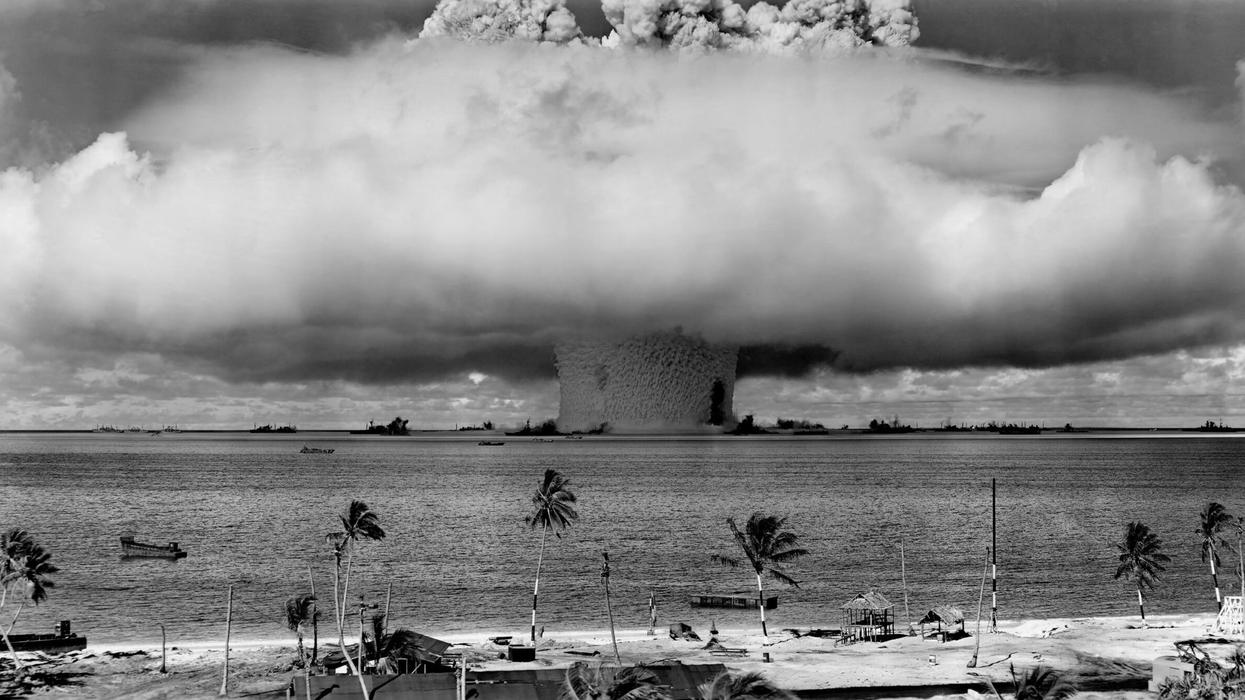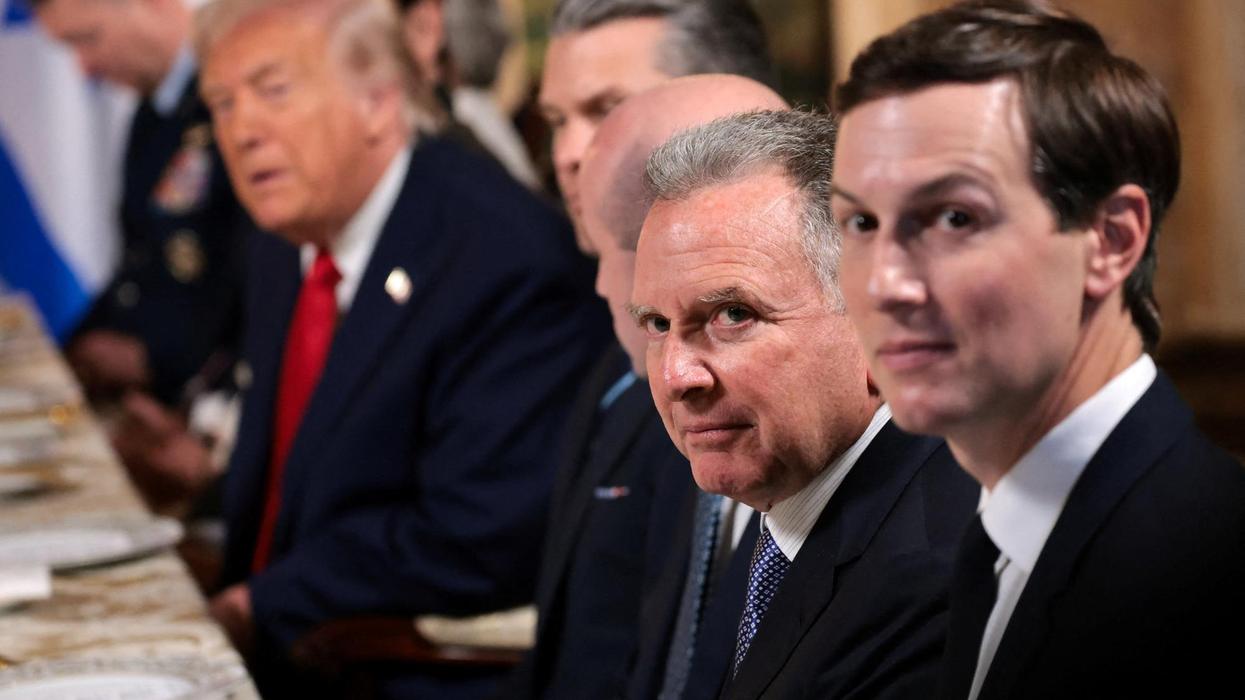Much of geopolitics is about signaling in the expectation that the other party for whom the signal is sent understands the message.
This is one of the major lessons from Henry Kissinger’s voluminous memoirs and, indeed, in the broader history of diplomacy. It requires two to tango, as the saying goes, which in this context means that the other party should be ready to listen and capable of deciphering the underlying message.
The signal lamp on the bridge of Beijing’s diplomatic flagship has been flashing that its captain has changed course and wants the West, particularly the United States, to reconsider its depiction of China as a disruptive force bent on undermining the global economy’s steering system — that it is neither a rule-maker, nor a rule-taker, but a rule-breaker. This is not how China sees itself. Indeed, it has a strong interest in upholding a stable global economy while it struggles with its own economic challenges
China wants to re-enter the global community and, in particular, the global economy after flirting with developing a more self-reliant economy and a closer association with Putin’s Russia. The lessons learned and the conclusions drawn are that this was a blind alley and failed to offer China’s leadership what it wants more than anything else: economic growth.
President Xi Jinping was re-elected China’s leader (Secretary-General of the Chinese Communist Party, or CCP) on October 23, 2022. At the same time, the composition of the CCP’s new politburo standing committee was made public and confirmed expectations that its members would be loyal to Xi.
This was taken as a sign of his having won complete control of China’s political system. But that judgment was too hasty.
Since 1949, when the CCP won the civil war, China has been dominated by informal networks that worked behind the veil of official institutions. Very few, if any, of the seminal policies that ultimately determined China’s course were decided by these formal institutions. The most obvious example of this is the reign of Deng Xiaoping whose only formal position for some of the time that he was China’s de facto leader was when he served as chairman of the Chinese Contract Bridge Association.
That President Xi felt the need to institutionalize his power through his reelection as secretary-general may be a sign of weakness rather than strength — a suggestion that the kind of informal power structure on which Deng relied to retain his dominance had become too fragile and uncertain.
And while Western analysts interpreted the election of a standing committee consisting of Xi loyalists as a demonstration of his domination, it remains unclear whether its members are loyal to the policies adopted by him —including enhanced state control over society and the economy, a more anti-western and assertive stance in global affairs, and closer ties with Russia — during his last five-year term or whether they are loyal to him personally and not necessarily to those policies.
Regardless of which interpretation is correct, President Xi Jinping, probably already in October 2022 if not before, saw the need to change course.
It didn’t take long before China’s strict zero-COVID lockdown policy was not only reversed, but completely lifted. While it was not officially stated, the reversal could not be seen as anything other than an admission that lockdown no longer was sustainable (maybe even that it had been unsuccessful) in the face of public demands that it be lifted.
Besides the popular discontent, it seems reasonable to believe that a major reason for the abrupt policy revision was the assessment that the economy was shifting to a lower-growth trajectory. For the leadership, that prospect was intolerable. The CCP has long legitimized its monopoly on power by its ability to deliver high economic growth. Indeed, as seen through the lens of ancient Chinese philosophy regarding the “Mandate of Heaven,” rulers could retain their power only by improving the people’s wellbeing, and it appears that the CCP has concluded that the best way to do so, at least for the time being, is to repair relations with the West.
Similar messages are sent out regarding relations with Moscow. Since the Russian invasion of Ukraine in late February last year, western media have repeatedly reminded its publics that Xi and Putin, meeting just a few weeks before, had described their friendship has having “no limits.” Any serious assessment of China’s position toward the war in Ukraine, however, would concluded that there are indeed limits.
On December 21, the chairman of Putin’s political party, Dmitry Medvedev, visited Beijing at the CCP’s invitation. The Chinese news agency Xinhua subsequently reported that Xi affirmed to his visitor that Beijing “decides its position and policy based on the merits of the matter concerned, upholds objectivity and fairness, and actively promotes peace talks. Hopefully, relevant parties will remain rational and exercise restraint, carry out comprehensive dialogue, and address joint security concerns through political means.” Not a word about “understanding,” let alone supporting Russian policy in Ukraine.
China did not impose sanctions on Russia after the attack on Ukraine but neither did it substantially step up economic cooperation with Russia to alleviate the effect of Western sanctions. It is the second biggest holder of U.S. Treasury bonds and could easily have made life difficult for Washington by selling some. It didn’t do so.
In a remarkable signal of policy change already last summer, then-vice foreign minister Le Yucheng, who was in charge of relations with Russia and who had repeatedly stressed the depth and warmth of the bilateral relationship, was removed from his post and now serves as deputy head of the National Radio and Television Administration. Until then, he had been seen as one of the top candidates to replace Wang Yi as minister for foreign affairs. When the name of the new foreign minister was announced at the same time, the ambassador to the United States, Qin Gang, got the nod.
For some years, the world has heard about China’s what was labelled Chinese “‘wolf warrior”’ diplomacy, characterized by strong and sometimes even threatening statements issued by Chinese envoys, that marked an abrupt change from the style set by former Foreign Minister Li Zhaoxing, who was known for greeting everyone with a broad smile and almost irresistible charm. Earlier this month, the most visible “wolf warrior,” Zhao Lijian, who served as the foreign ministry’s chief spokesperson, was moved to the Department of Boundary and Ocean Affairs as one of three deputy directors.
The Biden administration, to its credit, has not appeared to be impervious to these signals. It is heard on the grapevine that a visit of Secretary of State Antony Blinken to China is expected to visit Beijing next month as part of an anticipated “step ladder” of meetings between top U.S. and Chinese officials.
Indeed, it will follow the meeting between Secretary of Treasury Janet Yellen and her Chinese counterpart, Vice Premier Liu He during the World Economic Forum in Davos two weeks ago — their first face-to-face meeting after a couple of virtual meetings.
China is also knocking on Europe’s door. Wang Yi, who was promoted from foreign minister to membership in the Politburo (not, however, the standing committee) to oversee foreign affairs, is now scheduled to visit Europe.
The new Chinese ambassador to the EU, Fu Cong, has recently given an interview coming out strongly in favor of enhancing bilateral relations. He mentioned specifically the stalled ratification process over the EU-China Comprehensive Agreement on Investment, which has been blocked by the European Parliament over human rights concerns and in retaliation for sanctions recently imposed by Beijing on several European individuals and entities, including five MEPs.
The ball is now in the court of the U.S. and the EU. The risk is that they prioritize their demands over changes in Beijing’s policies, including human rights, over the colossal geopolitical advantages, including China’s position on Ukraine and its relationship with the Kremlin, that could accrue from a more positive response to Beijing’s signaling.
If so, the emerging opportunity will be lost. Even more so, if China’s overtures are seen as a sign of weakness that can be exploited to the West’s advantage. That would be a pity and move the world farther from a more stable geopolitical and geo-economic balance.
















